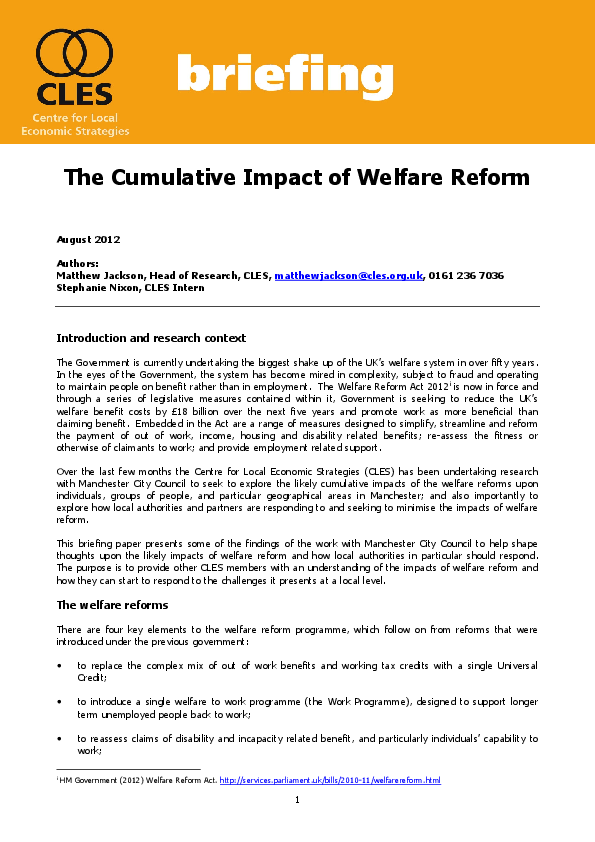The Cumulative Impact of Welfare Reform
The Government is currently undertaking the biggest shake up of the UK’s welfare system in over fifty years. In the eyes of the Government, the system has become mired in complexity, subject to fraud and operating to maintain people on benefit rather than in employment. The Welfare Reform Act 2012 is now in force and through a series of legislative measures contained within it, Government is seeking to reduce the UK’s welfare benefit costs by £18 billion over the next five years and promote work as more beneficial than claiming benefit. Embedded in the Act are a range of measures designed to simplify, streamline and reform the payment of out of work, income, housing and disability related benefits; re-assess the fitness or otherwise of claimants to work; and provide employment related support.
Over the last few months the Centre for Local Economic Strategies (CLES) has been undertaking research with Manchester City Council to seek to explore the likely cumulative impacts of the welfare reforms upon individuals, groups of people, and particular geographical areas in Manchester; and also importantly to explore how local authorities and partners are responding to and seeking to minimise the impacts of welfare reform.
This briefing paper presents some of the findings of the work with Manchester City Council to help shape thoughts upon the likely impacts of welfare reform and how local authorities in particular should respond. The purpose is to provide other CLES members with an understanding of the impacts of welfare reform and how they can start to respond to the challenges it presents at a local level.



